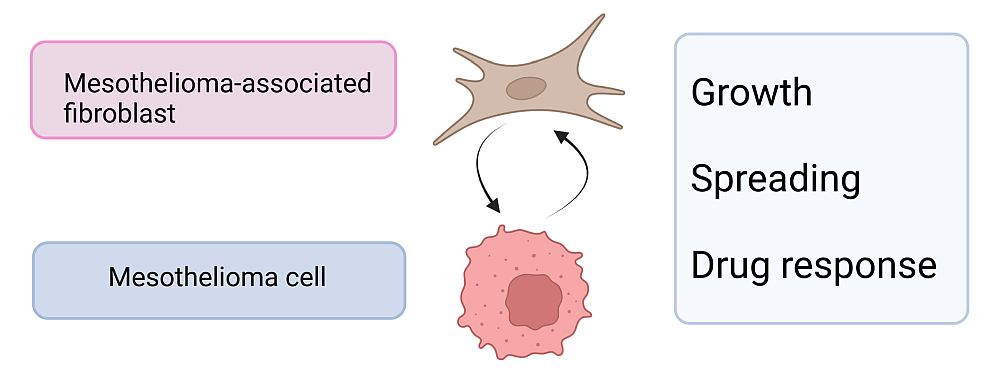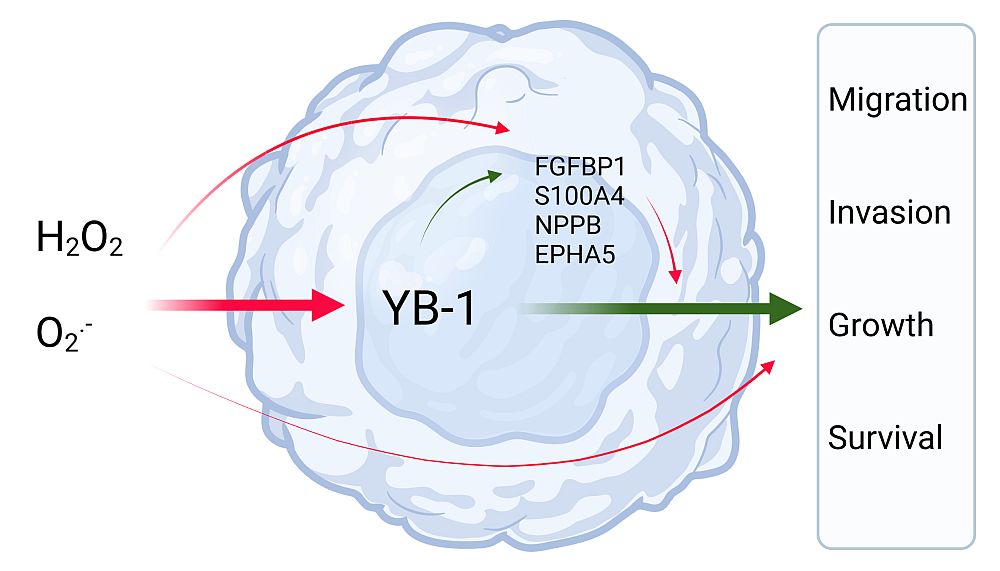Mesothelioma-associated fibroblasts in the progression and drug response of pleural mesothelioma
Pleural mesothelioma is characterized by the loss of tumor suppressor genes but mutations in oncogenes are rare. This led us to hypothesize that extrinsic signals emanating from the tumor microenvironment play an important role in pleural mesothelioma.
Fibroblasts are the most abundant cell type in the tumor microenvironment and it has been shown for instance in colon or lung cancer that fibroblasts in the vicinity of tumors become reprogrammed and are then called cancer associated fibroblasts (CAF). CAF can influence tumor progression in multiple ways. Understanding the interaction between tumor cells and CAF can open up new avenues for cancer treatment.
To investigate tumor cell fibroblast interactions in pleural mesothelioma, we have isolated fibroblasts from the tumors of pleural mesothelioma patients (mesothelioma-associated fibroblasts, MAF). We aim to characterize them in comparison to normal pleural fibroblasts and investigate their impact on growth, migration, invasiveness and drug response of pleural mesothelioma cells.
Regulation of YB-1 and its putative effectors by oxidative stress
Oxidative stress through reactive oxygen species (ROS) as a consequence of asbestos exposure is a main cause of pleural mesothelioma (PM). Y-box-binding protein 1 (YB-1) is a central player in cell stress regulation and is upregulated in mesothelioma.
One aim of this project is to clarify whether ROS upregulate YB-1 in mesothelial cells and pleural mesothelioma cells.
In previous work, we have identified several genes that are up- or downregulated by YB-1. The second aim of this project is to study their contributions to YB-1-mediated cellular activities such as increased migration and invasion.


